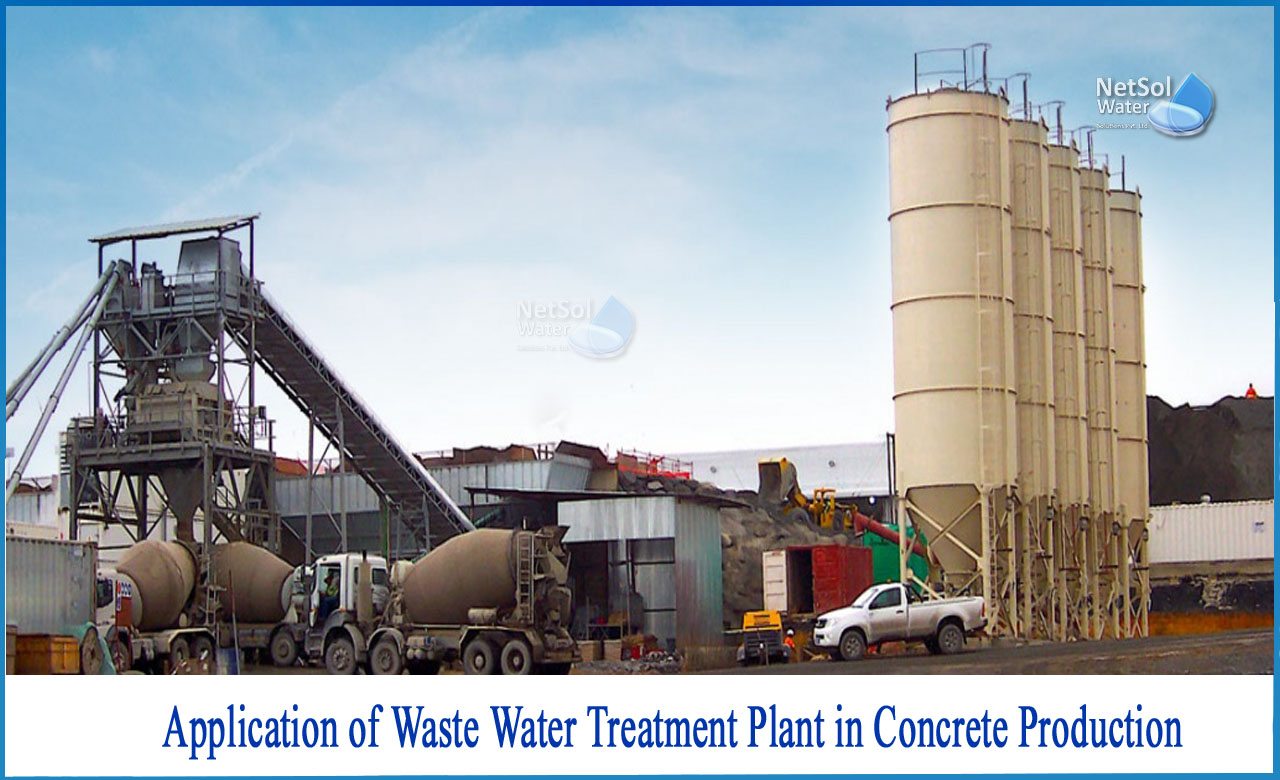What are the applications of WWTP in concrete production?
In order to keep operations functioning, concrete production applications require constant wastewater treatment. Excess waste can diminish earnings, slow down operations, and cause environmental harm, hence wastewater treatment is required to stay below regulatory restrictions.
As a result, one must treat wastewater to ensure that water quality remains good while expenses remain low. One could pay a third party to transport and clean your wastewater, but this is both expensive and inefficient. It also restricts the amount of water that may be reused.
Instead, filtration methods should be used to treat the water on-site. This can result in a variety of advantages, including:
-Significant cost and efficiency savings;
-Long-term sustainability improvements;
-Reusability of treated water for a nearly closed-loop solution.
Treating your concrete wastewater
The major goals of concrete wastewater treatment are to return the pH of the water to normal and remove aggregate. Other wastewater treatment options, such as the use of coagulants, flocculants, or corrosion inhibitors, may be necessary depending on the specific application.
Reducing the basic pH of the water to a value of around 7 or 8 is required to restore the pH to normal values. This can be accomplished by removing water alkalinity with pH adjusters. Simultaneously, user is forcing dissolved aggregate to settle out, making aggregate filtering easier.
Mechanical filtering procedures are employed to remove any suspended solids and aggregate once your water has achieved the desired pH. While there are a few various types of mechanical filtering equipment available, the filter press is the best for concrete wastewater. Filter presses are important pieces of equipment for separating liquids and solids.
Concrete Wastewater Is a Problem!
Every day, countless gallons of water are needed to mix concrete and scrub down equipment as the reliance on concrete and ready-mix applications grows. Cleaning the inside of a single concrete truck's drum requires 150-300 gallons of water, which equates to 3,000-5,000 gallons of water per day for a single ready-mix plant.
What is the purpose of a filter press?
Nothing compares to the water efficiency and cost savings of Netsol’s Filter Press when it comes to filter presses. This system makes it simple to handle, transport, and dispose of garbage while reclaiming up to 90% of your water.
The filter press uses proprietary technology to provide enhanced concrete wastewater treatment in the following ways:
1: Real Automatic Washing
For both plate and cloth designs, filter presses can be supplied with an automatic washing system. On the mud head side of the filter press, this system consists of one valve, one piping system, and discharging valves on each plate.
2: Cleaning Mud Cake
To keep the level of chemicals in the sludge below a specific threshold, certain mud cakes and aggregate may need to be washed with clean water. Before being discharged, clean water is injected into the press chambers.
3: Squeezing Membranes
When your cakes require a very low level of residual moisture, filter presses can be supplied with membrane plates. Membrane squeezing in these installations entails pumping water into these specific plates, which expand in volume and squeeze the cake to reduce moisture.
4: Core Blow
Core blow systems remove any remaining liquid mud from the diffusion conduit that runs between the plates. After the filtration cycle is completed, but before the cake is discharged, this is done. A compressed air system can be added to the filter press, which pumps air straight from the movable plate to eliminate excess liquid muck. The blown mud is then dumped back into the mud homogenizer tank or directly into the wastewater pit.
5: Cake Drying Racks
Install cake dryer systems to inject air into the filter press to reduce the remaining moisture of the cakes. The air dries the cakes before being evacuated through the press's drainage system.
6: Trays for Drip
Drip tray devices keep water from dropping onto the mud cakes that have previously been ejected. This works automatically, thanks to a specialised motor/gearbox system that is controlled by the PLC. Drip trays are only used under the filter press during the filtration cycle; once the filter press opens to discharge the cakes, they are removed.
Conclusion
Netsol water, a recognised partner in the concrete industry, can handle all of your wastewater problems with a combination of chemical expertise and mechanical filtering experience.
Netsol Water is Greater Noida-based leading water & wastewater treatment plant manufacturer. We are industry's most demanding company based on client review and work quality. We are known as best commercial RO plant manufacturers, industrial RO plant manufacturer, sewage treatment plant manufacturer, Water Softener Plant Manufacturers and effluent treatment plant manufacturers. Apart from this 24x7 customer support is our USP. Call on +91-9650608473, or write us at enquiry@netsolwater.com for any support, inquiry or product-purchase related query.



